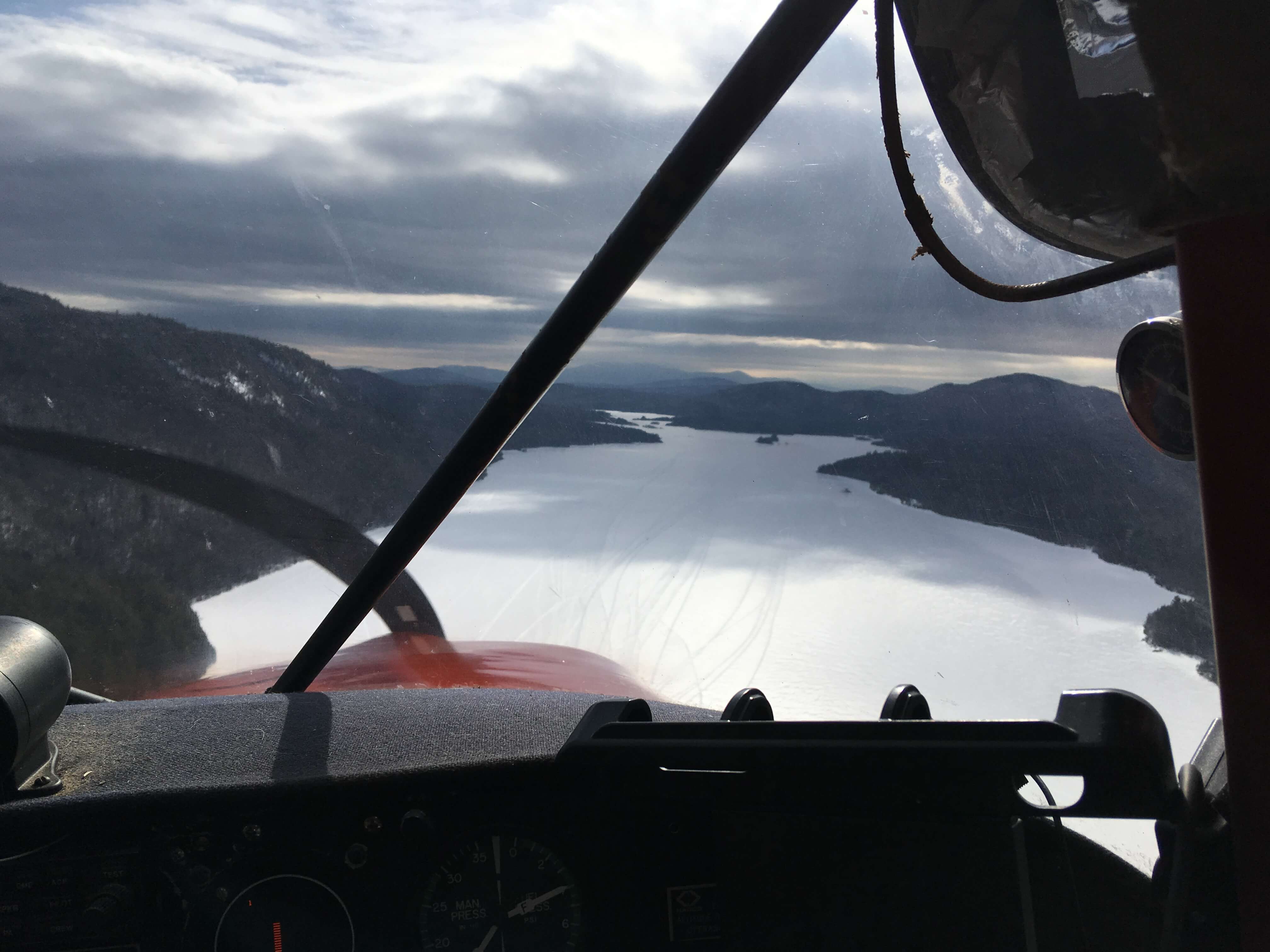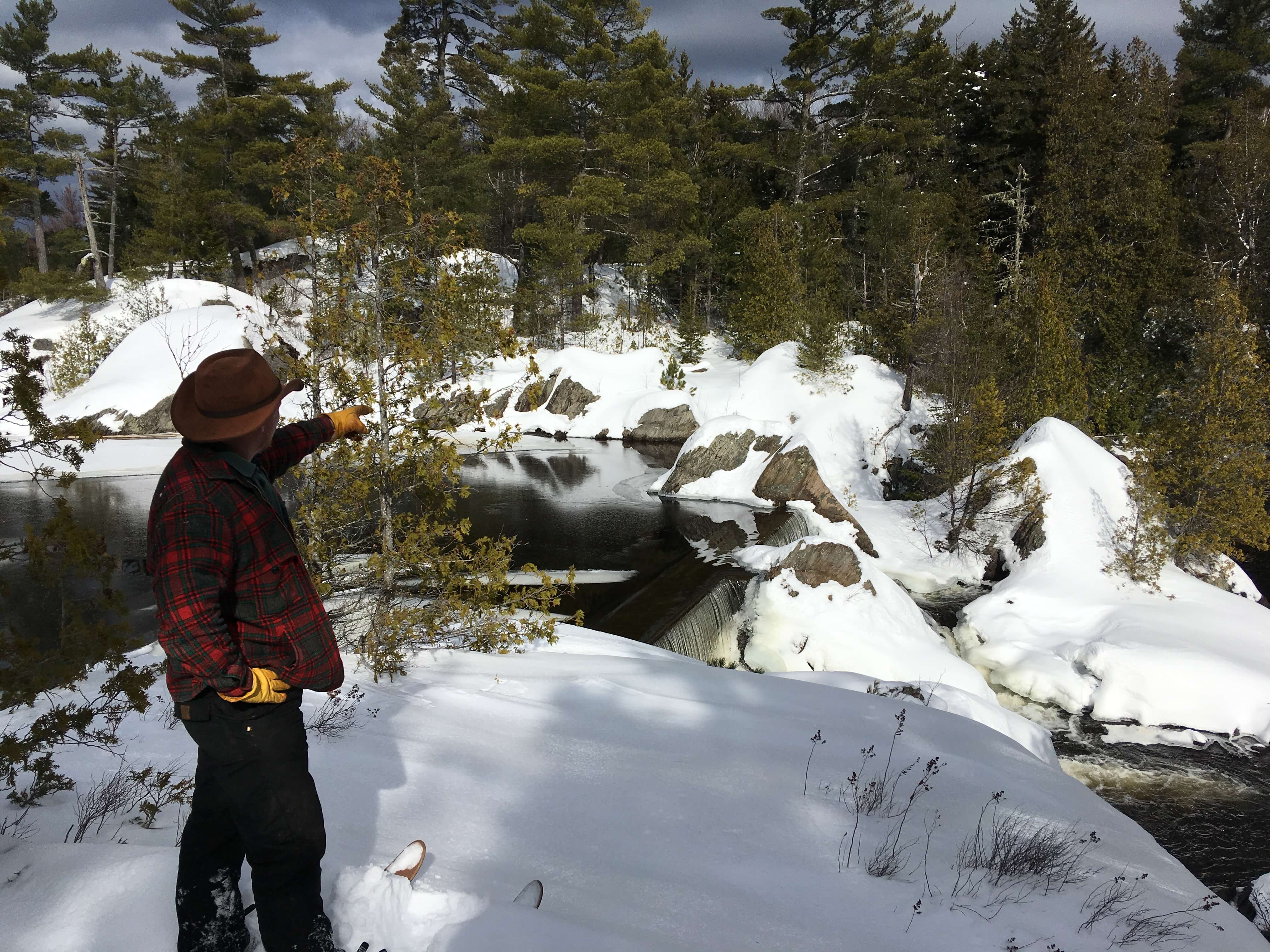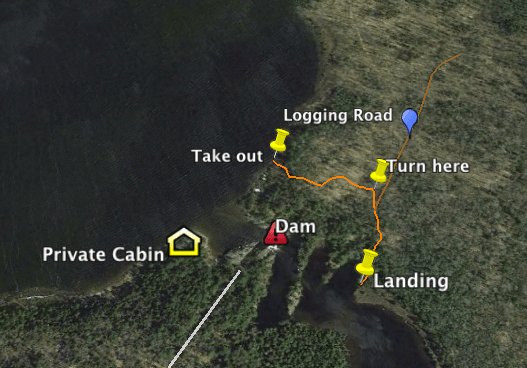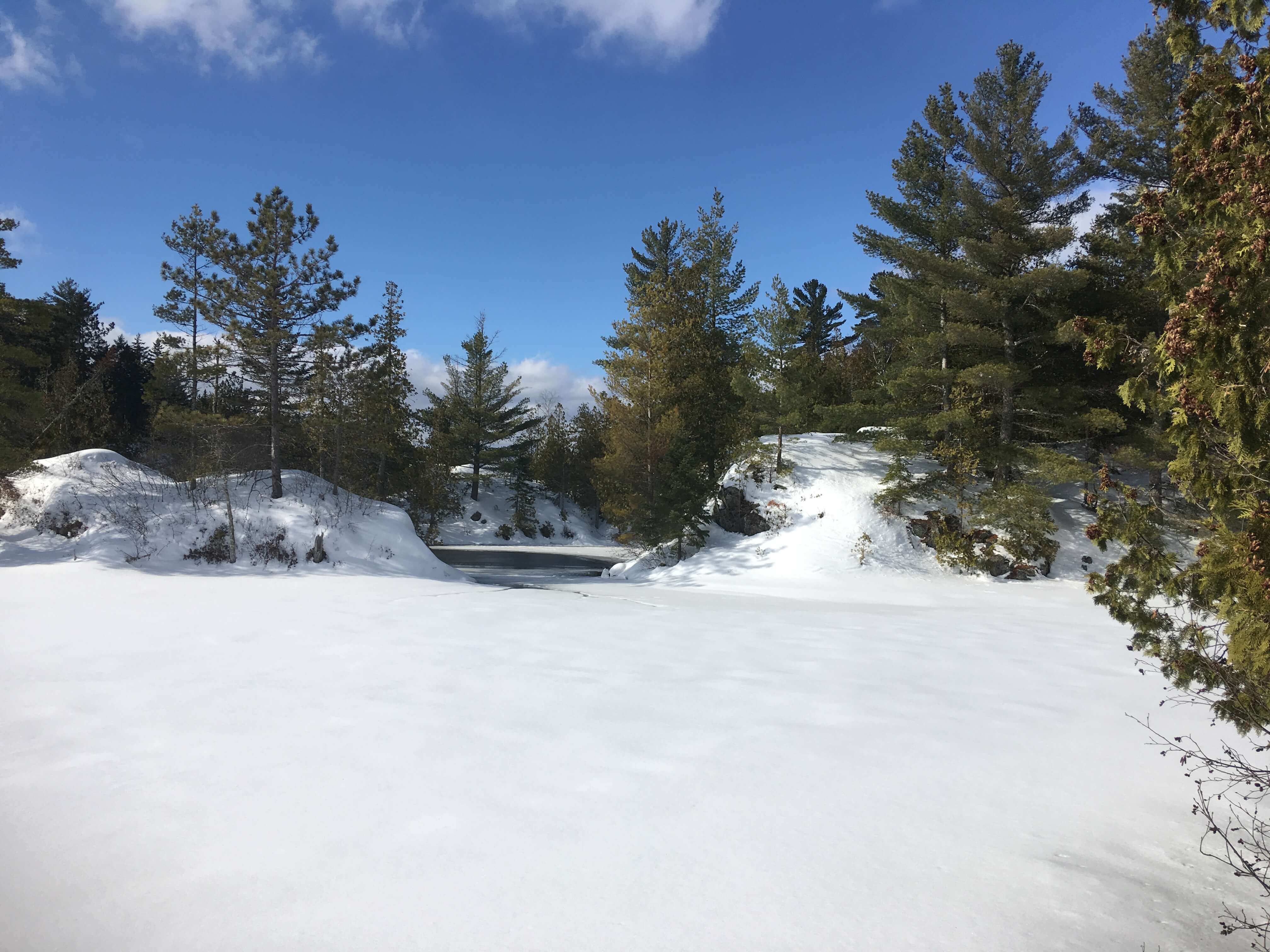One of the fun things about winter site visits is seeing the NFCT in an entirely different way. So on Valentines Day, it was a real treat to join Thomas Coleman, a forester from Landvest, to fly into Maine’s Spencer Lake, one of the most remote and beautiful places on the NFCT.
Tom picked me up in his no frills floatplane – modified with skis for winter travel – at the Jackman airport. No security gates or boarding passes here. Indeed, the only staff member was operating a massive snowblower to clear the runway after a recent storm. After a 15-minute southbound flight between rugged hills rising over a frozen landscape, we touched down on the south end of the lake.

Our goal was to assess a portage route that had been challenging paddlers. While section paddlers can access the lake by paddling south from Fish Pond, thru-paddlers must paddle, line and pole their way up Spencer Stream, before carrying around a dam at the lake’s south end.
When the NFCT was first mapped, the dam was a washed out, timber structure simple enough to portage. But the new dam is a more formidable obstacle. Soon after the dam was rebuilt, we began getting feedback from paddlers who felt challenged by the steep and rugged landscape.

As the NFCT owns no land, all site improvements are completed in partnership with public and private landowners, which is why I got to fly in with Tom. Landvest manages thousands of acres of woods in western Maine for timber production, including the lands around Spencer Lake
Tom and I spent an hour trudging through knee deep snow, aided by snowshoes and skis, to scout portage options. Routes on river right, while shorter, required man-handling boats up steep slopes and pass close by a private cabin. We soon discovered the best route is on river left via a straightforward, 350 yard walk up a rough path, along a logging road, and then down to the lake. Small islands in the river block the view of the dam at the downstream end of the carry, so it is no wonder why many paddlers paddle by here.
Landvest, like most timber companies in Maine, often allows the public to access their land for respectful, low impact recreation. But it is only through careful stewardship and responsible use that these places remain open to the public. NFCT users are a respectful and considerate bunch, and because of this, landowners are open to working with us.
After obtaining GPS data to update our maps, and noting the locations that would benefit from improved signage and corridor maintenance, we were on our way back to Jackman. With a portage route identified and a stewardship plan developed, this winter mission was a successful one!
